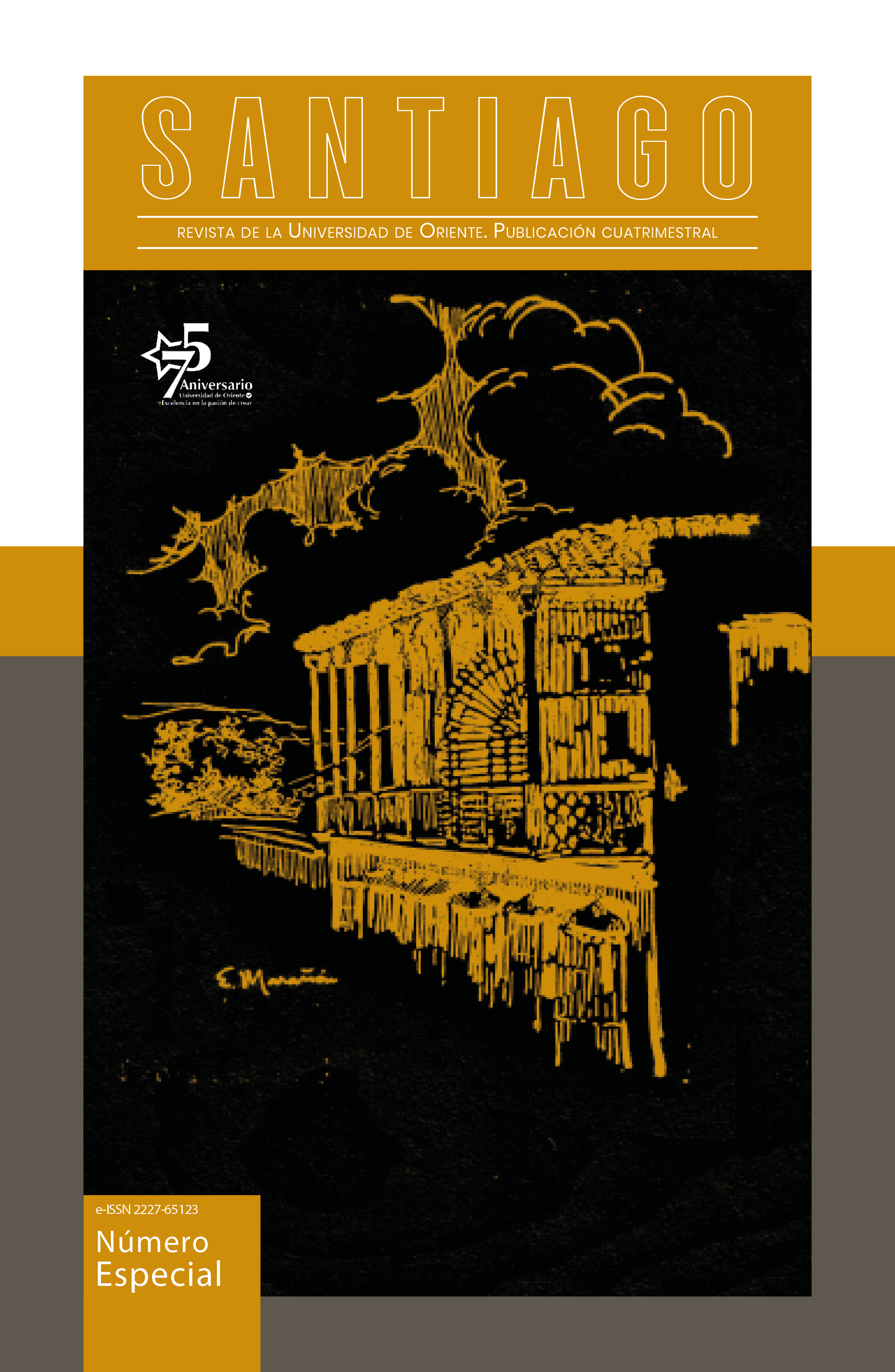Role of families in school accompaniment in COVID-19: needs analysis
Keywords:
role, families, school accompaniment, Covid-19Abstract
The teaching interruption during the Covid-19 pandemic imposed on families the leading role in school accompaniment under a remote teaching model. The objectives were: to determine the needs of the families linked to this role; analyze the performance of school accompaniment, and identify the meanings attributed to the role and the way of coping with it. It was a qualitative study carried out in Palma Soriano in 2021; the action-research method was assumed and observation, individual and group interviews were applied with the support of telepsychology. Sample made up of 129 mothers/fathers/guardians and 11 primary school teachers. Basic, material, technical and personal preparation needs were identified for the emotional management of schoolchildren, tutoring and the use of family support networks. The role was assumed differently among the families; was meant as difficult, complex, and fell on the mother figure.
References
Álvarez, M. E. (2021). ¿Cómo marcha en Cuba el curso escolar 2020-2021?: los retos de las teleclases. Cubadebate. http://www.cubadebate.cu/noticias/2021/02/18/como-marcha-en-cuba-el-curso-escolar-2020-2021-los-retos-de-las-teleclases
Avila, N., Almeyda A., y García S. (2022). Los costos familiares del acompañamiento educativo en tiempos de COVID- 19. Reflexiones desde el Contexto Cubano. Universidad de La Habana, [S.l.], (293), 307.
Choe, Y. J., & Choi, E. H. (2020). Are We Ready for Coronavirus Disease 2019 Arriving at Schools? Journal of Korean Medical Science, 35(11), 127. http://doi.org/ggq848
Díez, E. J., y Gajardo, K. (2020). Educar y evaluar en tiempos de Coronavirus: la situación en España. Multidisciplinary Journal of Educational Research, 10(2), 102–134. https://doi.org/10.17583/remie.2020.5604
Dujarric, G. M., Alfonso, A., y Vázquez, M. (2020). COVID-19 y crisis del cuidado: Reflexiones en torno a la dinámica de los cuidados en familias cubanas. En M. Romero Almodovar (ed.), Género, cuidado de la vida y COVID-19 en Cuba. Diversas miradas y realidades (pp. 48-56). Fundación Friedrich Ebert.
Fondo de las Naciones Unidas para la Infancia (UNICEF). (2021). Educación en tiempos de COVID-19. La experiencia cubana. https://www.unicef.org/lac/media/21176/file
García, A., Castellanos, R., Álvarez, J. y Pérez, D. (2020). Aislamiento físico en los hogares a causa de la COVID-19: efectos psicológicos sobre niños y adolescentes cubanos. https://www.unicef.org/cuba/media/1936/file/COVID19
Hernández, R., Fernández, C. y Baptista, P. (2014). Metodología de la Investigación (6.a ed.). Editorial Mc Graw Hill.
Hodges, Ch., Moore, S., Lockee, B., Trust, T., & Bond, A. (2020). The Difference Between Emergency Remote Teaching and Online Learning. EducaseReview. https://bit.ly/3goAild
Lara, T. (2020). El aporte económico del cuidado en tiempo de COVID-19. En M. Romero Almodovar (ed.), Género, cuidado de la vida y COVID-19 en Cuba. Diversas miradas y realidades (pp. 35-47). Fundación Friedrich Ebert.
Moscardino, U., Dicataldo, R., Roch, M., Carbone, M., y Mammarella, I. C. (2021). Parental stress during COVID-19: A brief report on the role of distance education and family resources in an Italian sample. Current Psychology, 40, 5749–5752. https://doi.org/10.1007/s12144-021-01454-8
Organización de las Naciones Unidas para la Educación, la Ciencia y la Cultura (UNESCO). (2020). Coalición Mundial para la Educación COVID-19.
Peña, L. (2021). Antes de volver al aula. Cubadebate. http://www.cubadebate.cu/opinion/2021/04/03/antes-de-volver-al-aula/
Pérez, Y., Barroso, C., Amaro, A. y Lorenzo, A. (2021). Acciones educativas de la familia con el escolar durante el confinamiento por la COVID-19. Revista Cubana de Pediatría 93(3), 1377.
Pérez-Pérez, Y., Barroso-Pérez, C. T., Amaro-Blanco, A. J., y Lorenzo-Ruiz, A. (2021). Validación de una escala de acciones educativas de la familia en confinamiento por COVID-19. Santiago, 153, 203-219.
Pichón, R. (s/f). Concepto de rol. https://www.ucipfg.com/Repositorio/MSCG/MSCG-08/BLOQUE-ACADEMICO/Unidad3/lecturas/El_interjuego_de_roles.pdf
Romero, R. (2020). El circuito de cuidado como profesión y las cubanas en tiempos de COVID-19: entre vicisitudes y aplausos. En R. Romero Almodovar (ed.), Género, cuidado de la vida y COVID-19 en Cuba. Diversas miradas y realidades (pp. 19-25). Fundación Friedrich Ebert.
Siqueira, C. A., Freitas, Y. N., Cancela, M., Carvalho, M., Oliveras, A., & Souza, D. L. (2020). The effect of lockdown on the outcomes of COVID-19 in Spain: An ecological study. Plos One, 15(7). https://doi.org/10.1371/journal.pone.0236779
Steinmayr, R., Lazarides, R., Weidinger, A., & Christiansen, H. (2020). Teaching and learning durin the COVID-19 schoollockdown: Realization and association with parent- perceived students´ academic outcomes- A study and preliminary overview. https://bit.ly/3fL8d8i
Vázquez, M. A., Bonilla, W. T., y Acosta, L. Y. (2020). La educación fuera de la escuela en época de pandemia por COVID-19. Experiencias de alumnos y padres de familia. Revista Electrónica sobre Cuerpos Académicos y Grupos de Investigación, 7(14), 111-134.
Zainuddin, Z., Perera, C. J., Haruna, H., & Habiburrahim, H. (2020). Literacy in the new norm: stay-home game plan for parents. Information & Learning Sciences, 121, 645-653. https://doi.org/10.1108/ils-04-2020-0069
Downloads
Published
Issue
Section
License
Copyright (c) 2022 Karen Soler-Veloz, Sandra Guillén-Alarcón, Niuvis Maceo-Chacón

This work is licensed under a Creative Commons Attribution-NonCommercial-NoDerivatives 4.0 International License.
CC Reconocimiento-NoComercial-SinObrasDerivadas 4.0


.jpg)

_de_logo.jpg)












